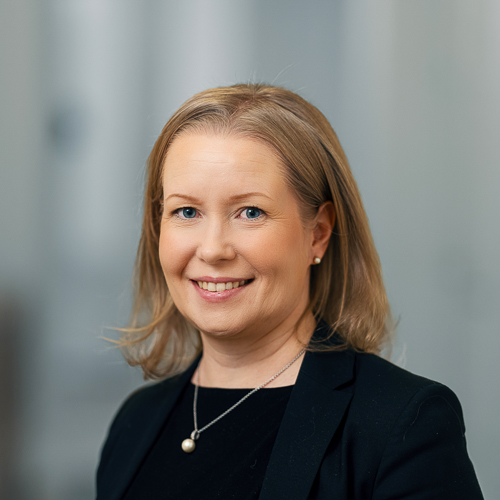There are over 2.3 billion children under 18 in the world, but they are often overlooked in business and investing despite their number.
Children need special protection and care because of their dependence on adults and ongoing physical, mental, and emotional development. In addition to universal human rights, children have special rights. The UN Convention on the Rights of the Child states that every child has a right to life and development and has the right to have their views considered and taken seriously.
Improving adults' working conditions can also advance children's rights
In fact, potential business impacts on children span the workplace, the marketplace, and the community and the environment.
The first of these is the workplace. Typically, companies focus on preventing or eliminating child labour. That is also what the investors mainly follow, when analysing companies. Making working life better for parents and caregivers is another way to advance children's rights. Earning a living wage across the value chain or the possibility for childcare or parental leave are essential ways to ensure children's well-being, also in the Nordics.
The second and very tangible way businesses affect children is in the marketplace through their products and services, which should be safe for children. In addition, companies should consider how their marketing influences children and their choices.
The third way companies affect children is broader and has to do with how the company affects the environment and society. Children suffer more than adults from pollution, conflicts, and crises. The realisation of children's rights related to the society and the environment actually often goes hand in hand with other ESG measures in companies.
Tools for advancing children's rights in investing
Investors are increasingly aware of children's rights. UNICEF has several initiatives that offer investors information and tools to consider children's well-being better and for example Global Child Forum also provides a Benchmark data from companies.
Evli was a part of UNICEF Finland's pilot project focusing on company and investor attitudes and concrete ways to advance children's rights. As a part of the project, UNICEF Finland conducted a benchmark study on listed Finnish companies.
Evli has also started its own research project to better understand how Finnish companies consider children's rights and how this could be integrated into investment decisions. Evli's goal is also to develop the responsible investing practices further to better include children's rights.
Evli's study looks at children's rights from a broad perspective and sheds light on possible risks but also possibilities in many industries and companies. Evli’s Portfolio Manager Anna-Liisa Rissanen has been building this analysis.
“For example, in the case of a Finnish forestry company, risks could be using child labour in the supply chain, opportunities for parental leave, product safety, and the company's impact on climate, water quality, and land use.” In 2023, the study covered two sectors, and the work in other sectors will continue in 2024," Rissanen highlights.
Investors have an important opportunity to make children's rights better acknowledged, both by raising the topic in their analysis and their ESG engagement activities.
Overcoming the data challenges
Broadening ESG analysis to include a wider range of topics, such as children's rights or other social issues, introduces significant challenges, particularly around the availability and specificity of data.
"Incorporating more nuanced ESG data, such as children’s rights, into investment analysis often presents challenges due to data availability," notes Mattias Lagerspetz, Portfolio Manager at Evli’s Systematic Funds.
"While there are excellent resources, like the Global Child Forum's Benchmark, that provide a broad overview, we sometimes need either more depth or wider coverage to make well-rounded decisions."
Evli’s work on its Atlas portfolio customization platform is helping to address these gaps by integrating different datasets into its thematic ESG strategies, including impact portfolios focused specifically on children's rights.
“With the rise of generative AI and large language models, we are not just data consumers—we’re exploring how to become data creators,” Lagerspetz adds.
By incorporating expert frameworks like Global Child Forum’s Benchmark and UNICEF's Tool for Investors into AI-driven workflows, Evli can analyze unstructured data, such as text-based reports, and convert them into structured data points, such as company-specific ratings on children's rights and other ESG issues.
"This means we can offer investors an unprecedented level of customization," Lagerspetz explains.
"Whether it's creating tailored portfolios or providing detailed reporting, our approach allows investors to apply the lens that best fits their individual perspective on social and sustainability matters. This flexibility is what makes the Atlas platform a powerful tool for responsible investing."
Investors’ role in supporting children’s rights
Investors are becoming more aware of the importance of children's rights in ESG considerations. Tools and frameworks are emerging to help integrate these into investment strategies. These efforts highlight the growing responsibility and opportunity for investors to drive positive change.
Evli was one of the world's first asset managers to comment on the Child-Lens Investing Framework document and an earlier Tool for Investors on Integrating Children's Rights Into ESG Assessment guidance.
The results of UNICEF Finland's benchmark study were published earlier this year. UNICEF Finland has researched how children's rights are actualized in 52 big Finnish public companies, what these companies are good at and where there is room for improvement. Evli brought an investor view to adapting the methodology to the Finnish context.













